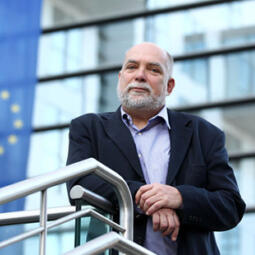
Thomas Wieser heads the two European Union committees on the front lines in combating Europe’s financial crisis – the Euro Working Group and the Economic and Financial Committee. This event is presented by the CES European Economic Policy Forum.
Abstract: In this lecture,Thomas Wieser will address recent changes to the institutional landscape of financial sector regulation and oversight. He will focus on the new approach to the supervision of financial institutions as well as the restructuring and resolution regimes to be applied. From November 2014 onwards, financial institutions from the Euro Area (and other Member States) will be supervised – directly and indirectly – by a Single Supervisor, the European Central Bank. Moreover, future costs of crisis resolution should, to the largest degree possible, be borne by investors, not the taxpayer. Resolution funds will be progressively mutualized over the next decade, and will thus cut – to a very large extent – the link between bank and sovereign balance sheets. These institutional changes will have important consequences for financial stability. They should contribute substantially to the resilience of the institutional landscape of the EU.
Biography:Thomas Wieser is Chairman of the Euro Working Group as well as President of the Economic and Financial Committee. Prior to this he was Director General for Economic Policy and Financial Markets in the Ministry of Finance, Vienna, in charge of macro-economic policy, international and EU affairs, financial market legislation, and export credits and guarantees.
After graduating in Economics (University of Innsbruck), he pursued post-graduate studies in theoretical and mathematical economics and taught at the University of Colorado, Boulder (Fulbright scholarship) as well as the Institute of Advanced Studies, Vienna. He spent 4 years with EFTA in Geneva, where he was in charge of negotiations with the EU on state aid affairs. Prior to that, he worked in banking in Vienna and as a research economist. He chaired the OECD Committee on Financial Markets from 2005-2009 and served as the President of the Economic and Financial Committee of the EU from March 2009 to March 2011 and was re-elected in January 2012.